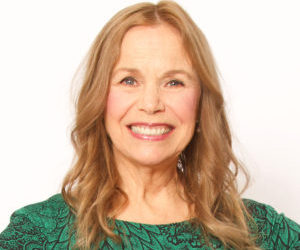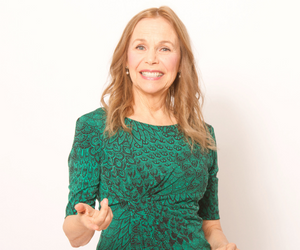Breast Cancer: Don’t Over diagnose, Do Improve Lifestyle
Avoid Overdiagnosis
When you screen a healthy population for breast cancer, you’re going to get over-diagnosis. This has become particularly evident. As screening practices switched from film-based mammography to digital mammography, we now can detect more small lesions. Only some of those small lesions that we are now detecting will grow into aggressive cancers. For 10-30% of the cases we find a lesion, we don’t necessarily need to cut it out or radiate it; we could follow it to see if it increases in size in a short period of time.
Overdiagnosis is particularly important for older women to consider. We don’t want the elderly woman to feel traumatized by being treated for an indolent lesion; especially when it will not prolong her life and increase her anxiety. Once she’s had lumpectomy and radiation for an indolent lesion, she’ll have follow-up tests for the rest of her life. Overdiagnosis means that she’s likely to endure all this for a condition that might have caused her very little trouble the rest of her life.
To Avoid Overdiagnosis, Only Do Risk-Based Screening
At the Breast Cancer Surveillance Consortium, we’ve developed the free BCSC Risk Calculator. It can be accessed from https://tools.bcsc-scc.org/bc5yearrisk/calculator.htm and downloaded . It’s also available for download to your iPhone from https://itunes.apple.com/us/app/bcsc-risk-calculator/id919034661?mt=8.
One of the goals of the Risk Calculator is to encourage health care providers to assess a woman’s risk before deciding to screen for breast cancer. We now know that it’s common for women to over- or underestimate breast cancer risk. With this tool, health care providers will have a much more accurate picture of a woman’s individual risk; they can then delay screening to a later age and/or screen those who are at low risk for breast cancer less often.
Instead of merely going by age, we can now also take into account other aspects of the patient. We can consider the individual’s ethnicity, breast density, and whether she’s had a first-degree relative with breast cancer. Another thing we could consider is whether she’s had a breast biopsy, and if so, the breast biopsy outcome. The Risk Calculator is free, simple, easy-to-use, and can decrease the risk of overdiagnosis by tailoring screening to a woman’s risk of breast cancer.
We Need a New Paradigm for Responding to Small Lesions
As it is, all small lesions are biopsied to determine if they are cancer. However, some lesions put women at risk for breast cancer, but are not themselves cancer. In the same sense that moderate hypertension is a risk factor for stroke, but hypertension is a condition, not a disease. Whether it’s a small lesion or moderate hypertension, the symptoms bear watching, but they’re symptoms, not the disease itself that requires aggressive treatment. Research is underway to monitor small lesions rather than removing all of them.
Lifestyle Modifications are Important for preventing Breast Cancer
The data are clear: if a woman is overweight or obese and reduces her weight, she’ll reduce her risk of breast cancer.
The data are also clear that exercise is important for risk reduction. She needs to be physically active for at least 20 or 30 minutes for 5 to 7 days per week. A brisk walk is good, taking the stairs, and vigorous housework such as gardening, vacuuming or sweeping will also help. Her goal should be movement as opposed to just sitting.
As for diet, there aren’t enough large-scale diet studies to allow us to say which diet is most protective against breast cancer. A Mediterranean Diet, one that’s high in fruits, vegetables, whole grains, legumes, and nuts, seems to hold some promise, but we aren’t in a position right now to be sure. What we do know is: if your patient is overweight, she needs to consume fewer calories, and whether she’s overweight or not, she needs to exercise 5 to 7 days a week.
Search Articles
Latest Articles
Reassessing Male Sex Trafficking Statistics
https://www.psychologytoday.com/us/blog/to-end-human-trafficking/202401/reassessing-male-sex-trafficking-statistics Publication – psychologytoday.com
From Walmart to War Zone: An American Hero in Ukraine
https://foreignpress.org/journalism-resources/from-walmart-to-war-zone-an-american-hero-in-ukraine Publication – foreignpress.org
The challenges of the most mined country, Ukraine. An interview with Mitzi Perdue
The challenges of the most mined country, Ukraine. An interview with Mitzi PerdueAbout The Episode In almost two years of the war with Russia, land mines along with unexploded bombs and artillery shells have exposed millions of people in Ukraine who are in danger....
From Pulpit to Propaganda: Anatomy of a Russian Information Operation
https://foreignpress.org/journalism-resources/from-pulpit-to-propaganda-anatomy-of-a-russian-information-operation Publication – foreignpress.org
Subscribe to Updates
About Author

Mitzi Perdue is the widow of the poultry magnate, Frank Perdue. She’s the author of How To Make Your Family Business Last and 52 Tips to Combat Human Trafficking. Contact her at www.MitziPerdue.com
All Articles
Headaches and Hormones
Headaches and Hormones Most Headaches Seen By Primary Care Physicians Are Migraines Ninety percent of patients who see their Primary Care Physician (PCP) for a headache are there because of a migraine headache. Further, almost 30% of patients in a PCP’s waiting room...
David Copperfield’s Secret of Happiness
David Copperfield's Secret of Happiness Frank Perdue was a big believer in the David Copperfield Secret of Happiness. (By the way, we’re not talking about my favorite magician; we’re talking about the book by Charles Dickens.) A character in the novel David...
News You Can Use: Recent Studies That May Change Your Practice
News You Can Use: Recent Studies That May Change Your PracticeCALCIUM AND VITAMIN D RECOMMENDATIONS ARE CHANGING Our long-standing emphasis on calcium and vitamin D supplementation is currently being called into question. In the case of calcium supplementation, there...
Effective Way to Increase Employee Engagement
Effective Way to Increase Employee Engagement A story about Frank Perdue and Don Mabe The person who argued the most with Frank was the man Frank eventually appointed to succeed him as president of his company. This would have greatly surprised any outsider who didn’t...
When, Where, & How to Eat Your Live Frog! Avoiding Procrastination.
When, Where, & How to Eat Your Live Frog! Avoiding Procrastination. I’ve got a really great habit for you, one that can change your life, and speed you along your way to the success that you’ve dreamed of. It’s a tip that really works. Ready? Become a Ranovore! Hmmm,...
One Good Idea Can Change Your Life
One Good Idea Can Change Your LifeA brief story about Ernest Henderson Do what it takes to find good ideas. The reason? One good idea can change your life. And lots of good ideas can lead to undreamed of success! Let me explain why I say this by sharing a brief story...





